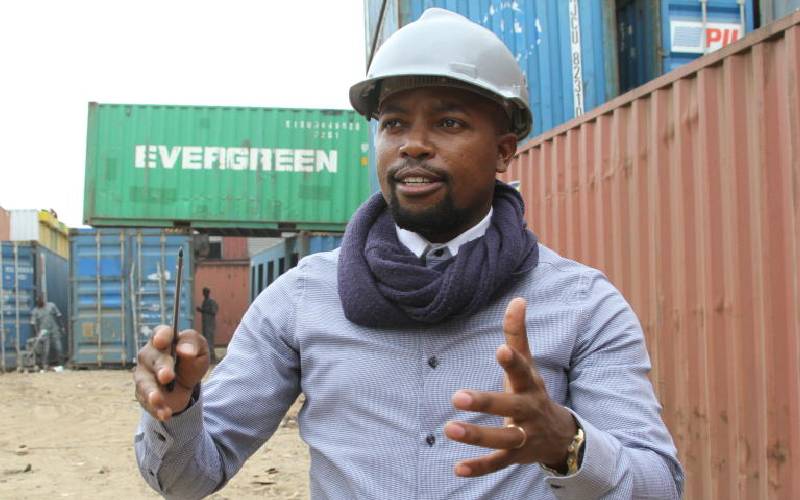
Container Works Africa Ltd Managing Director Kelvin Kyellenge. [David Njaaga, Standard]
In 2012, Kelvin Kyellenge grew tired of his bank job. For six years, he had led a miserable financial life living from pay cheque to pay cheque; hand to mouth; no savings; no assets acquired. It was a difficult job. A chance meeting one day with one of his bank customers opened his eyes to opportunities that lay in the container business. He quit his bank job and fully took upon selling containers. Today, he is the proud owner of Container Works Africa Ltd, a company that sells containers for different purposes - containers that are used to put up shops, security booths, offices, homes, mobile medical clinics...among other premises. Kelvin shares his business journey with Hustle.